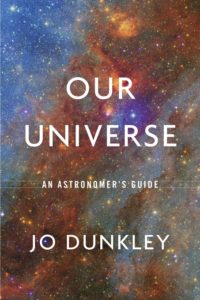The scene: a very nicely appointed high-rise hotel room in 1953. Two figures – “the Actress” (who looks remarkably like Marylin Monroe, played by Theresa Russell) and “the Professor” (looking every bit the spitting image of Albert Einstein, played by Michael Emil) – are gazing out a large window into the night.
Professor: I prefer to look up.
Actress: The stars. The stars are so far away. They make me feel small… and lonely.
Professor: All who look up feel small and lonely… like the rest.
The film, one of my favorites, is Nicholas Roeg’s 1985 adaptation for the screen of Terry Johnson’s 1982 play Insignificance. The entire film is well worth seeing (I’ve not yet had the opportunity to attend a performance of the play); however the brief interaction just quoted is one that often appears in my mind whenever I find myself staring up into the vastness of the night sky.
Yet in agreement with the underlying meaning of the Professor’s words, even though he feels “small and lonely” when doing so, he still prefers to look up – as do I; for in looking up the questions come. How far does space extend? When and how did it all begin? What about the ending? What else is out there? How do we know?
While all these questions do indeed have deeply philosophical aspects to them, likely much to the surprise of many, they are all also answerable through discoveries made in the fields of astronomy and astrophysics. And while many in those fields who might be willing to provide such answers might not do so in a manner that is intelligible to the non-scientist, Prof. Jo Dunkley, as she superbly demonstrates in her Our Universe; An Astronomer’s Guide, is both eminently qualified to do so, as well as possessing of the necessary skills to make her answers readily understandable.
A professor of physics and astrophysical sciences at Princeton University, Dr. Dunkley has been often distinguished for her work in cosmology, the cosmic microwave background, and dark energy. Put simply, she’s an expert in a number of areas of modern science the very names of which a substantial number people have never heard. However – and very fortunately for all who wish to learn a bit more about the structure of this vastness we all inhabit – her expertise also includes the area of science communication.
Beginning with that which is closest to our own planet, and slowly – by means of clearly phrased explanations, generously interspersed with easy-to-understand conceptual examples (i.e., if X was the size of a basketball court, Y would be the size of a ping pong ball…) to help put things into memorable perspective, Prof. Dunkley creates an continually expanding frame of reference upon which she proceeds to build further explanations throughout the book, until near the end the reader is astonished to discover that he or she is thoroughly engrossed in presentations of some of the deepest of the deep magic modern science has to offer.
Through her words, many often heard – but generally incorrectly used and ill-understood – terms such as the Big Bang and Dark Matter are given clear, intelligible, and, most importantly, correct meanings, rich in nuance and ripe with potential for further contemplation. Popular misconceptions are corrected, and meaningful perspective is given that makes not only what she presents more readily understood and able to be retained, but also serves to inspire the reader to continue on in further pursuit of additional understanding once the last page has been read.
My only concern with Prof. Dunkley’s book regards the title, specifically the subtitle “An Astronomer’s Guide.” I fear that some who encounter the book on a bookshop shelf or in an online listing might think to themselves that as they’re “not an astronomer” that it may be too complex to read, or require more previous understanding than they possess. Such couldn’t be farther from the truth, for while what Prof. Dunkley treats in its pages is certainly of a complex nature and any practicing astronomer – amateur or professional – would do well to read it (and take notes), thanks to her extraordinary skill as a teacher, anyone willing to follow her lead may read Our Universe with the confidence that their attention will be more-than-well repaid with both the enjoyment of new discoveries and the deep personal satisfaction that an improved understanding of the cosmos can provide.
Indeed, to return to the words of the Professor, all who look up may very well feel small and lonely, but they are also, most especially for the purposes of this book, astronomers – whether they already know it or not.
 Title: Our Universe; An Astronomer’s Guide
Title: Our Universe; An Astronomer’s Guide
Author: Jo Dunkley
Publisher: Harvard University Press
Imprint: Belknap Press
Format: Hardcover
Pages: 312 pages w/ many illustrations
ISBN 9780674984288
Published: April 2019
In accordance with Federal Trade Commission 16 CFR Part 255, it is disclosed that the copy of the book read in order to produce this review was provided gratis to the reviewer by the publisher.
If you enjoyed reading this, please consider signing up for The Well-read Naturalist's newsletter. You'll receive a helpful list of recently published reviews, short essays, and notes about books in your e-mail inbox once each fortnight.
